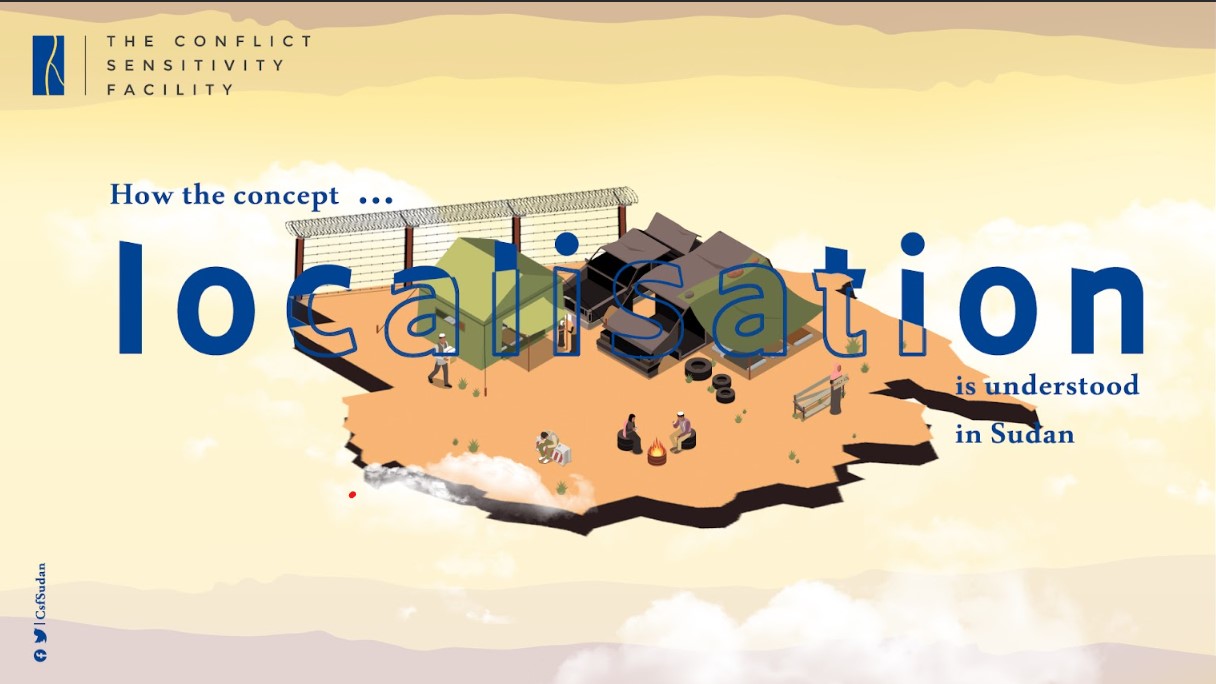
In this working paper, Making sense of ‘localisation’ in Sudan, the Conflict Sensitivity Facility (CSF) seeks to inform and enable a constructive conversation about the relationship between those working to provide aid in Sudan and the aid system in the country. Guided by a literature review and interviews with staff from international and national non-governmental organisations (INGOs and NNGOs) and United Nations (UN) agencies in Sudan, it identifies and explores themes that are relevant to aid’s conflict sensitivity.
Localisation is a contested term, covering issues with controversial and far-reaching implications. Talking about localisation seriously requires deep introspection from all actors to not only examine the systemic and structural nature of power within the aid sector, but also the day-to-day operational considerations that shape how aid is delivered, and its contributions to Sudan’s communities. While there are many pitfalls and challenges, appropriate and meaningful localisation is one of the most powerful tools to ensure that the aid sector in Sudan does not unintentionally perpetuate conflict by reinforcing marginalisation or unequal power dynamics.
It is beyond the scope of a working paper to provide a comprehensive assessment of localisation in Sudan. Instead, this paper aims to shed some light on how the term ‘localisation’ is understood in the context of Sudan, what it means for power dynamics and relationships between local and national actors and international aid actors, and implications for aid actors today. It considers the main obstacles and opportunities that could shape how localisation manifests in Sudan alongside its implications for Sudanese society. It aims to provide an opening for further discussion and more sustained and focused engagement leading to practice and policy recommendations.
Please note that this paper was written before conflict erupted in Sudan on April 15 2023 and that the Sudanese context has dramatically changed since. Still, this research provides useful background knowledge on the legacy and history of localisation in Sudan which is key to ensuring that aid actors support local civilian networks and organisations and local peace efforts when delivering humanitarian assistance.